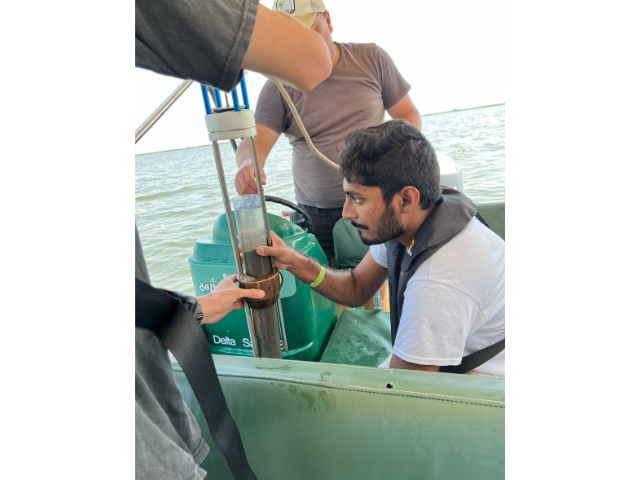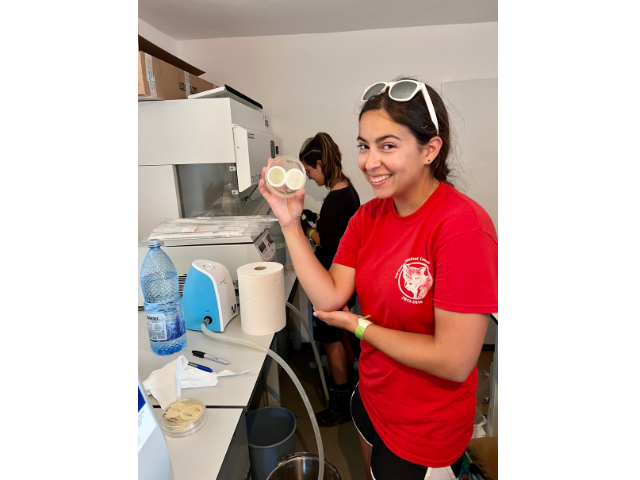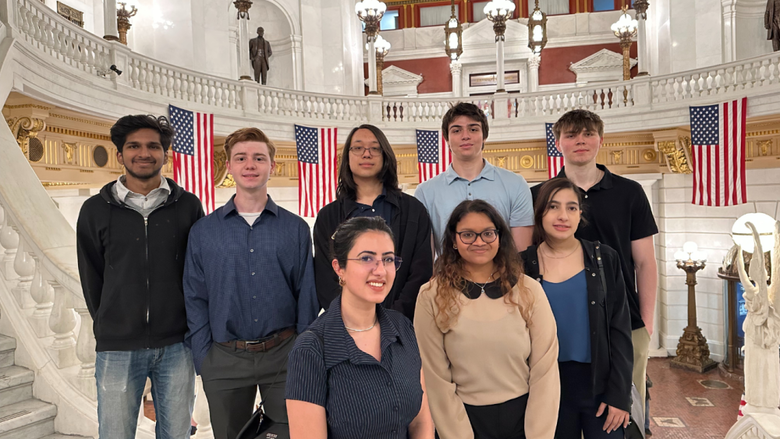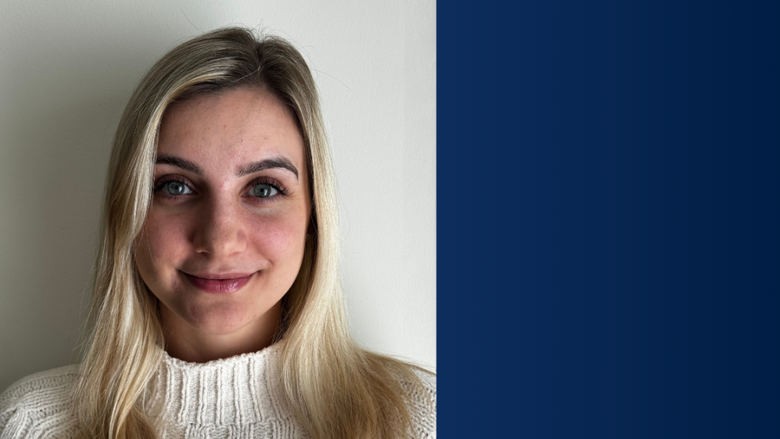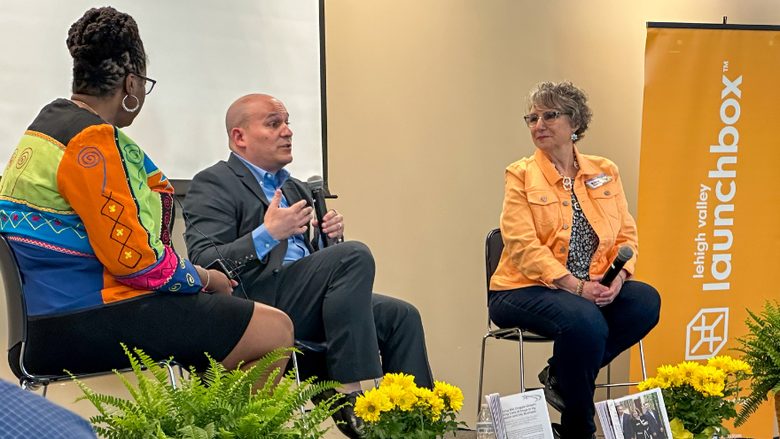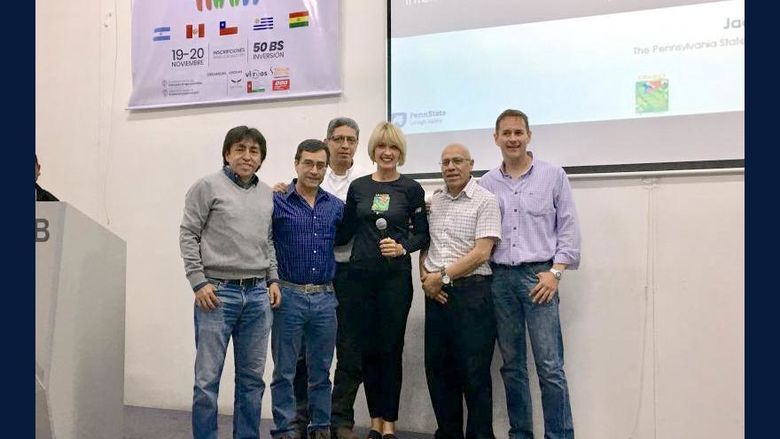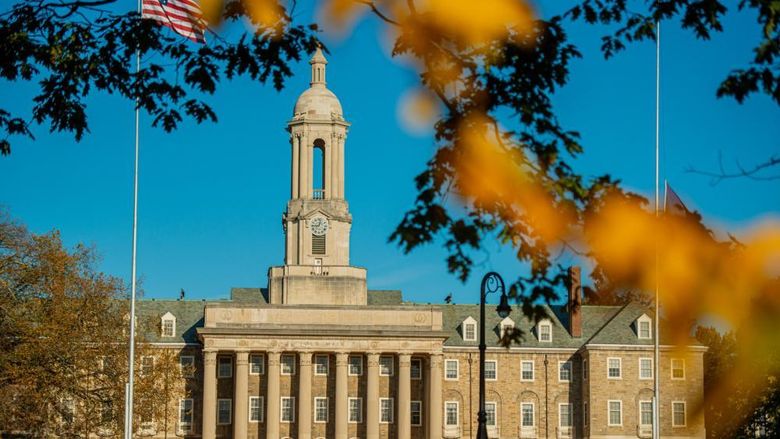
Twenty-four students from the United States and European Union spent two weeks conducting and presenting research around sustainability issues affecting the Danube River Delta in Romania as part of Penn State’s CHANCE Program.
CENTER VALLEY, Pa. — The Danube River and its delta runs for 1,800 miles through 10 countries, including Germany, Hungary, Romania, Bulgaria and Serbia. Heavily polluted when neighboring countries were industrializing under Soviet rule, the area began to recover in the 1990s. Today, new environmental risks like pesticides, micro-plastics and industrial waste are threatening the delta’s delicate sustainability once again. For 24 college students, the Danube Delta served as both a classroom and field laboratory for two weeks over the summer.
The students — selected from Penn State and nations throughout the European Union (E.U.) — were in Romania as part of the Penn State Connecting Humans and Nature Through Conservation Experiences (CHANCE) Program. CHANCE consists of two elements — international online and field courses — with a core pedagogical approach that blends real-world, environmental research with conservation efforts.
“The Danube Delta consists of extensive marshes, reed beds, islands, and floodplains, and forms a valuable natural buffer zone, filtering out pollutants from the Danube River, helping to improve the status of the north-western Black Sea's vulnerable waters,” said Jacqueline McLaughlin, CHANCE founding director and professor of biology at Penn State Lehigh Valley (PSU-LV). “It also is a haven for biodiversity with 5,300 registered flora and fauna species — a natural genetic bank with inestimable value for our global natural heritage.”
This spring, explained McLaughlin, all student participants worked online to learn about five key topics affecting the ecological status of the Danube Delta — nutrient overload (algal blooms), organic water pollution, land use transformation, loss of biodiversity, and microbiological contamination. These topics aligned with the environmental objectives of the present-day E.U. Water Framework Directive and Danube River Basin Management Plan and served as the basis for their field research in Romania. To further prepare for the field work while engaging online, students were then placed into one of five transnational teams, each focusing on one of the above key topics, to learn more about the realities of their assigned area. Top Romanian scientific researchers, experts in the students’ assigned focus area, mentored each team.
“Following their online preparation, the students and their mentors then met this summer in Romania to carry out their field work wherein each team devised its own unique research question, designed their own experiment, then completed their research,” McLaughlin said. The Penn State students selected for this program were split amongst the five transnational teams.
Princeton Bijou, a past Penn State Lehigh Valley student who is now a senior majoring in chemical engineering at University Park, said the experience living and working in Romania was “transformative.” He was part of the group studying nutrient overload. For their research, the students looked at three different Danube Delta lake complexes and evaluated the ecological status and trophic health of each, particularly the impact of pollutants like fertilizers and human waste.
“We had the opportunity to take our research all the way through. We had 33 samples, turned our results around, made connections, and produced our presentation in two-and-one-half weeks,” Bijou said. “We managed to do all this, beginning to end, in a short amount of time.”
Allison Lonkart’s group studied microbiology, specifically E-coli concentrations and antibiotic resistant variants in one of the delta river complexes. “We found all the levels were below the threshold of concern except for one that was near a farm,” the junior biology major from Penn State York said. “There was excellent water quality, and we observed when there were more plants, there was less E-coli concentration.”
CHANCE has enriched Lonkart’s college experience: “I thought the CHANCE course structure was one of the best I’ve had,” she said. “I was excited to learn, and we were doing something useful. We weren’t just doing busy work — we were doing real work.”
The experience was both educational and inspiring for Arlo Nemerson, a junior earth and mineral sciences major at University Park, whose group studied land use transformation.
“Working with the CHANCE team proved to be truly enriching," said Nemerson. "Firsthand, I experienced the immense value of teamwork and cultural exchange while also strengthening my problem-solving skills within a research context. This experience not only boosted my confidence in asking and answering scientific questions, but also enhanced my personal adaptability and resilience in unfamiliar environments.”
The students presented their findings at the inaugural 2023 CHANCE Romania Undergraduate Research Symposium at the University of Bucharest amphitheater on July 14. The students gave oral presentations with their research groups, followed by a Q&A. It was an international endeavor, with guests attending in-person and online. Collaborating with students from around the globe was one of the highlights of the program for the Penn State students.
“The international aspect and having to work together to solve sustainability issues was probably the most important aspect,” said Alex Kociuba, a recent PSU-LV biology major transitioning to University Park, whose group studied organic water pollution. “Creating a functional team within such a short time limit, when you’re all coming from different parts of the world — it was amazing that we all came together to fulfill our research objectives to impact sustainability.”
“Most students never get to experience another country, its people, and their cultures. Besides being able to offer students these opportunities, CHANCE offers students connections with nature such that they bask in its biodiversity and marvel over its purpose,” McLaughlin said. “They also get to research important issues that are negatively affecting nature [in areas like the Danube Delta] and can professionally diagnose its ecological status and sustainability then advocate, if necessary, for environmental protection measures to stakeholders.”
For more information on CHANCE, contact McLaughlin at [email protected] or visit the program’s website.
